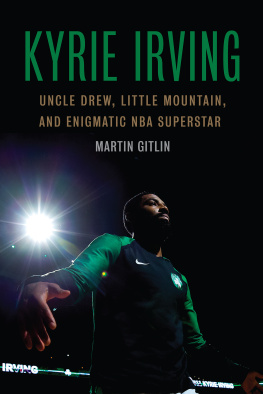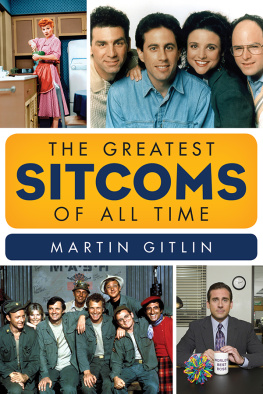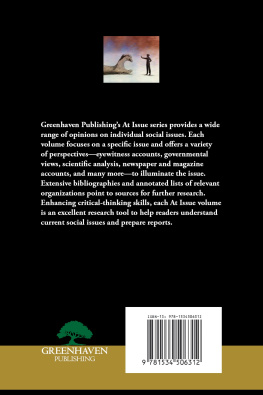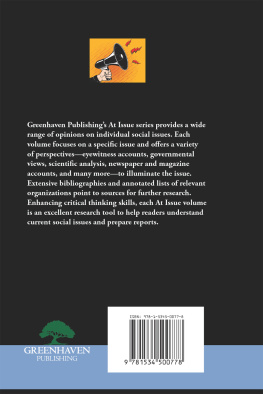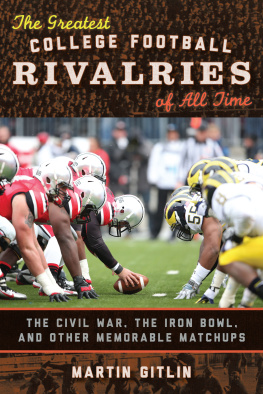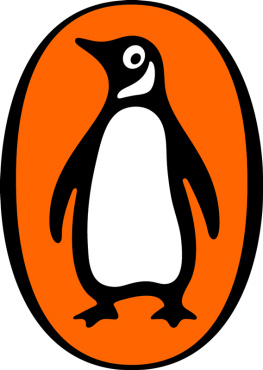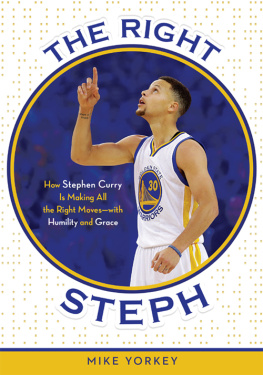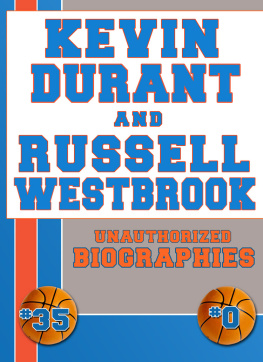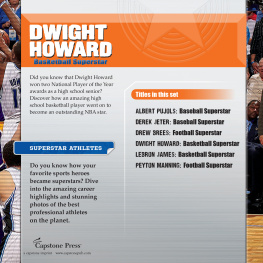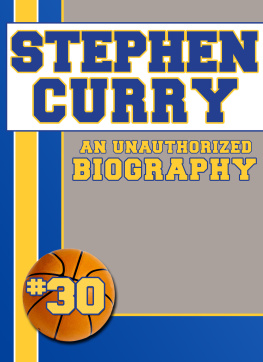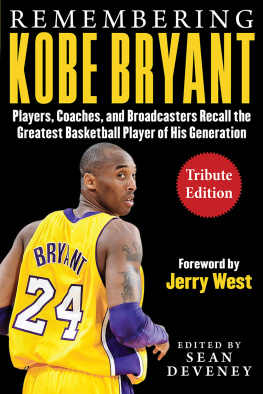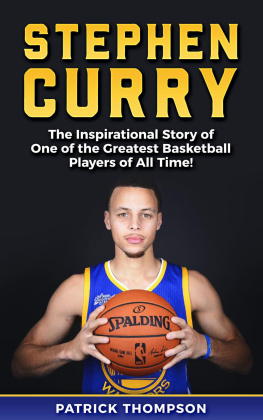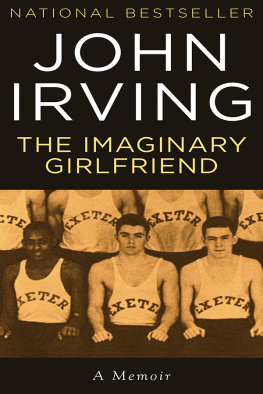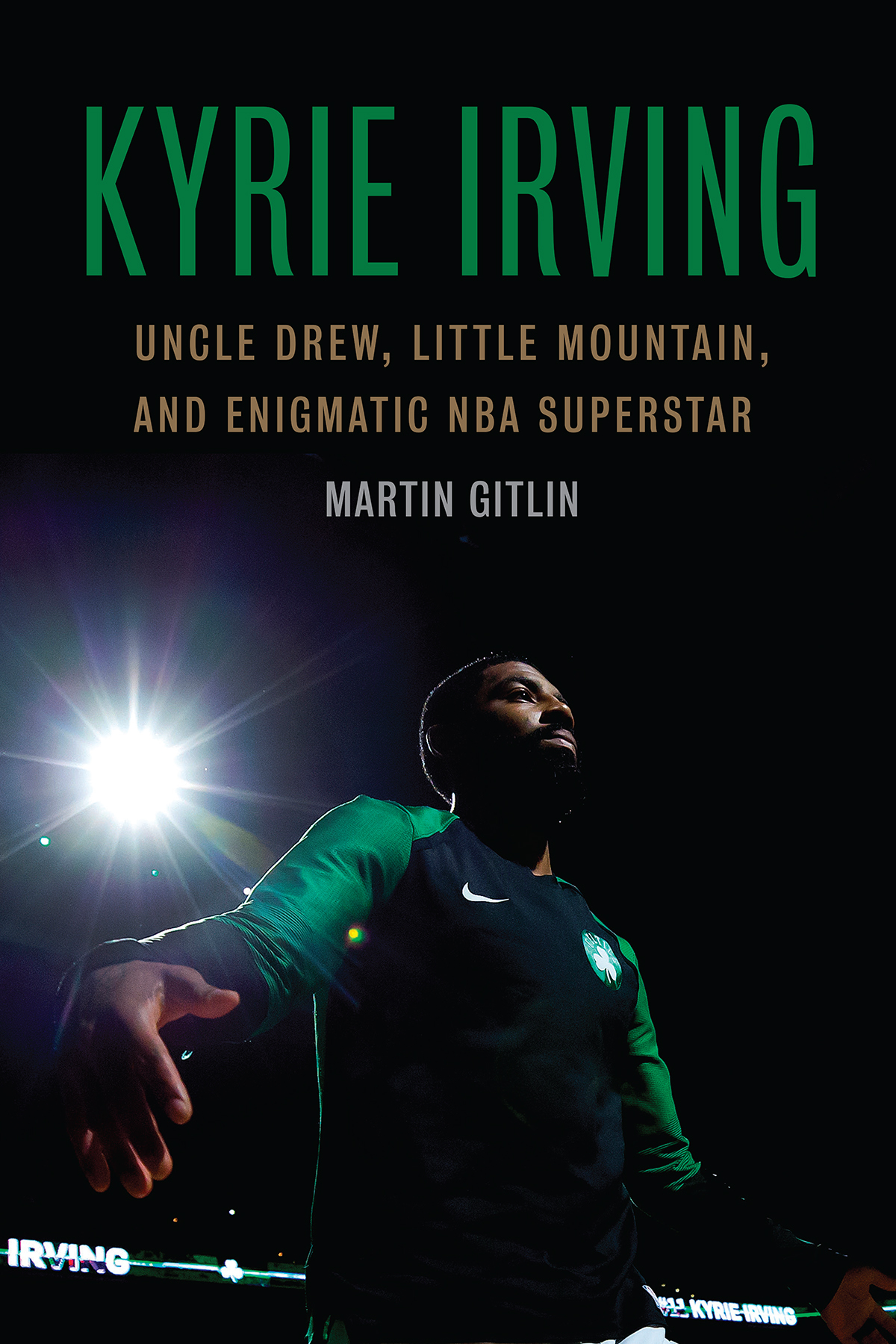
Basketball isnt a game; its an art form. You master the fundamentals so you can forget em, so you can improvise and just concentrate on what really matters: getting buckets.
Kyrie Irving
Kyrie Irving. I dont know him that well. He seems like a good kid. But Ive never seen a person so miserable. To have so much success, to have the world in the palm of his hand. Hes going to make $40 to $50 million a year for the next ten, fifteen years. Hes already won a world championship. Hes in the movies. But hes got to be one of the most miserable people Ive ever seen. He wanted to go to Boston because he wanted to have his own team.
Charles Barkley
Hes shown that he cant be the best player on a contending team.... Hes done in Boston.... His teammates will help him pack.... They cant wait for him to leave either.
Jalen Rose
Kyrie Irving
Uncle Drew, Little Mountain, and Enigmatic NBA Superstar
Martin Gitlin
University of Nebraska Press | Lincoln
2019 by Martin Gitlin
Cover designed by University of Nebraska Press; cover image Winslow Townson- USA TODAY Sports.
All rights reserved
Library of Congress Cataloging-in-Publication Data
Names: Gitlin, Marty, author.
Title: Kyrie Irving: Uncle Drew, Little Mountain, and enigmatic NBA superstar / Martin Gitlin.
Description: Lincoln: University of Nebraska Press, [2019] | Includes bibliographical references and index.
Identifiers: LCCN 2019005775
ISBN 9781496213495 (cloth: alk. paper)
ISBN 9781496218445 (epub)
ISBN 9781496218452 (mobi)
ISBN 9781496218469 (pdf)
Subjects: LCSH : Irving, Kyrie, 1992 | Basketball playersUnited StatesBiographyJuvenile literature.
Classification: LCC GV 884. I 88 G 57 2018 | DDC 796.323092 [B]dc23 LC record available at https://lccn.loc.gov/2019005775
The publisher does not have any control over and does not assume any responsibility for author or third-party websites or their content.
I am dedicating this book to all the newspaper journalists who have maintained their dedication despite shrinking wages and circulation. All my friends in that world remain a source of inspiration to me.
Contents
I would like to acknowledge the following people for taking time out of their busy schedules to be interviewed for this book: Brady Klopfer, Bill Livingston, Rick Noland, Jeff Schudel, and Steve Wiseman. Thank you one and all!
Some details are sketchy, others clear. It was a late-winter or early-spring afternoon in 2018. I was taking a break from my writing with a toasted cheese sandwich in one hand and TV remote in the other. Most certainly I was viewing a taped rerun of some show such as The Twilight Zone or All in the Family that my wife and kids cite as evidence of my perpetual childhood and refusal to link pop culturally into the twenty-first century.
This typical scene in my life was interrupted by an atypical phone call. I recognized the ID name immediately. It was Jeff Wechsler. Holy cow, I thought. Thats the agent for Kyrie Irving. How he learned I was authoring a biography of his client was obvious to me before I answered. One of a few Irving associates I had contacted to interview for the book must have informed him. Its amazing how much speculation can filter through a mind in the moments it takes to pick up a phone.
Wechsler wasted no time getting to the point. He expressed unhappiness about the project. He was not impolite, but firm and far less than friendly. He did not want me writing the book, but he understood he could not stop me. He indicated he would urge those close to Irving to decline interviews. He made it clear that the extraordinarily gifted point guard would not speak with me. And before hanging up, he uttered seven words that will forever remain in my consciousness: We control the narrative on Kyrie Irving.
That ship, of course, had sailed more than a decade earlier. What Wechsler either failed or refused to realize was that the media had controlled the narrative on Kyrie Irving from the moment his incredible talent began warranting such attention. Several years before the soon-to-be-superstar hired Wechsler as his agent and joined the Cleveland Cavaliers as the first overall pick in the 2011 draft, reports of his brilliance had surfaced. The narrative indeed had begun to be written and voiced.
But there would eventually prove to be far more to that narrative than his wizardry with a basketball. There was the emergence of an enigmatic young man both on and off the court. What followed were more questions than answers, all of which remained through the first seven years of his NBA career. Is Kyrie Irving a great player or merely a great talent? Is he motivated by team goals or only individual achievement? Does he raise the level of play of his teammates or even care to? Does he feel disdain for the media, using it only toward his own ends? And does this highly intelligent, well-spoken athlete really believe that the absurd claims of the Flat Earth Society are worthy of discussion?
One might argue that the paradox of Kyrie Irving negatively reflects modern thought. I have heard many in the sports media not only equate his outrageous offensive skills with all-around greatness despite his never having earned a spot on the first or second All- NBA team but also praise his flat-earth claim, questioning that the moon landing ever happened, and expressing wonderment over the existence of dinosaurs as bringing much-needed personality to the NBA truth be damned.
I recall vividly a 1970 Sports Illustrated baseball article featuring maddeningly underachieving Cleveland Indians left-hander Sam McDowell, whom slugger Reggie Jackson believed to have boasted the finest fastball, curve, slider, and changeup he ever saw. Author Pat Jordan offered that, to McDowell, the ability to achieve a goal and achieving it are one and the same, as are owning the greatest talent and being the greatest pitcher. Why then must he prove it? And in the end, McDowell proved nothing aside from demonstrating that talent alone sometimes triumphed.
The eventual revelation that alcoholism played a significant role in the demise of McDowells career weakens any comparison to Irving. But it remains to be seen if Irving suffers a similar fate due to a seeming lack of desire to maximize his potential through equal attention to defensive efficiency and willingness to fully involve his teammates offensively, as well as what could be interpreted as a motivation to further his personal brand rather than grow into the best all-around player he can be.
Kyrie Irving is a fascinating, complex man whose inspirations cannot be easily identified. He has searched for happiness and contentment through personal reflection, music, acting, intellectual pursuits, and even a 2018 trip to a Sioux reservation. It was there he found his second family, that of his mother of Native American heritage, whom fate cruelly removed from his life at the age of four.
Most athletes are so intrinsically tied to their athletic pursuits and achievements that the media and international fandom identify them strictly with the sports they play. Irving, on the other hand, is quite the Renaissance man. He is Kyrie Irving, but he is also known as Uncle Drew and Little Mountain. Unlike many athletes who embrace the trappings of their fame and fortune, he seeks self-actualization through a variety of pursuits. His primary goal as a player is rising to challenges rather than earning max contracts. His dreams extend far beyond the NBA arena.
Next page
